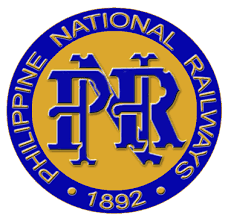

PNR officially began operations on November 24, 1892 as the Ferrocarril de Manila-Dagupan, during the Spanish colonial period, and later becoming the Manila Railroad Company (MRRCo) during the American colonial period. The first Railroad Legislation Act (Philippine Commission Act No. 554) was passed on December 8, 1902 granting the MRRCo the right to construct branch lines. On July 7, 1906, the Philippine Commission Act No. 1510 was enacted giving the concession of the railway to Speyer and Co. with Mr. Horace Higgins as General Manager. By authority of Philippine Legislature Act No. 2574, former Governor General Harrison negotiated the acquisition of the MRRCo by the Philippine Government on February 4, 1916. The acquisition of the MRRCo by the Philippine Government was consummated and the final transfer of ownership effected on January 1917.
The first Bicol train is put into operation on January 31, 1938. On May 8, 1938, the unified system of railroad from San Fernando, La Union in the North to Legazpi in the South is formally inaugurated. During the years 1942 to 1945, the railway comes under the control of the Imperial Japanese Army. The US Army restores the control of the railway to the Commonwealth Government on February 1, 1946.
It became the Philippine National Railways on June 20, 1964 by virtue of Republic Act No. 4156. The PNR is an attached agency under the Department of Transportation and Communications. On August 20, 1971, Republic Act No. 6366 was passed amending the PNR Charter. PNR is placed under the Civil Service Commission by virtue of PD No. 110 on January 26, 1973. PD 741 was issued on July 3, 1975, providing for the strengthening of the financial structure of the PNR and expanding its role and participation in the total economic and social development of the country. On July 23, 1979, by Executive Order No. 546, PNR becomes one of the attached agencies of the Ministry of Transportation and Communications, now Department of Transportation and Communications (DOTC).
The PNR shall provide safe, reliable and affordable railway services as a socio-economic development tool within the framework of the national infrastructure system, while ensuring sustainable operations so that optimum service can be rendered at a minimum passenger and freight prices.
An improved, sustainable railway system running from Manila to Legaspi, carrying cargo to and from North Harbor and Batangas, providing commuter lined from Caloocan to Calamba and in Bicol; poised for a unified rail system in Luzon from Sorsogon to Ilocos branching to Cabanatuan and Tuguegarao. With a perspective study of a transnational railroad system covering Luzon, Visayas and Mindanao; enjoying robust riderships and freight, providing accessible means of transport that's comfortable, secure, reliable and affordable to satisfied commuters - all these thru a responsive PNR organization engaged in Public-Private-Partnership.
Integrity;
Financial Accountability;
Social Responsibility ;
Excellence in Railway Operations; and
Teamwork.
| POSITION | NAME |
|---|---|
| No results found | |